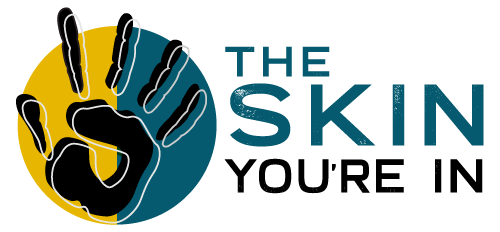BLOG
MAKIN' A WAY
A Blog by Dr. Thomas LaVeist
MAKIN' A WAY
A Blog by Dr. Thomas LaVeist
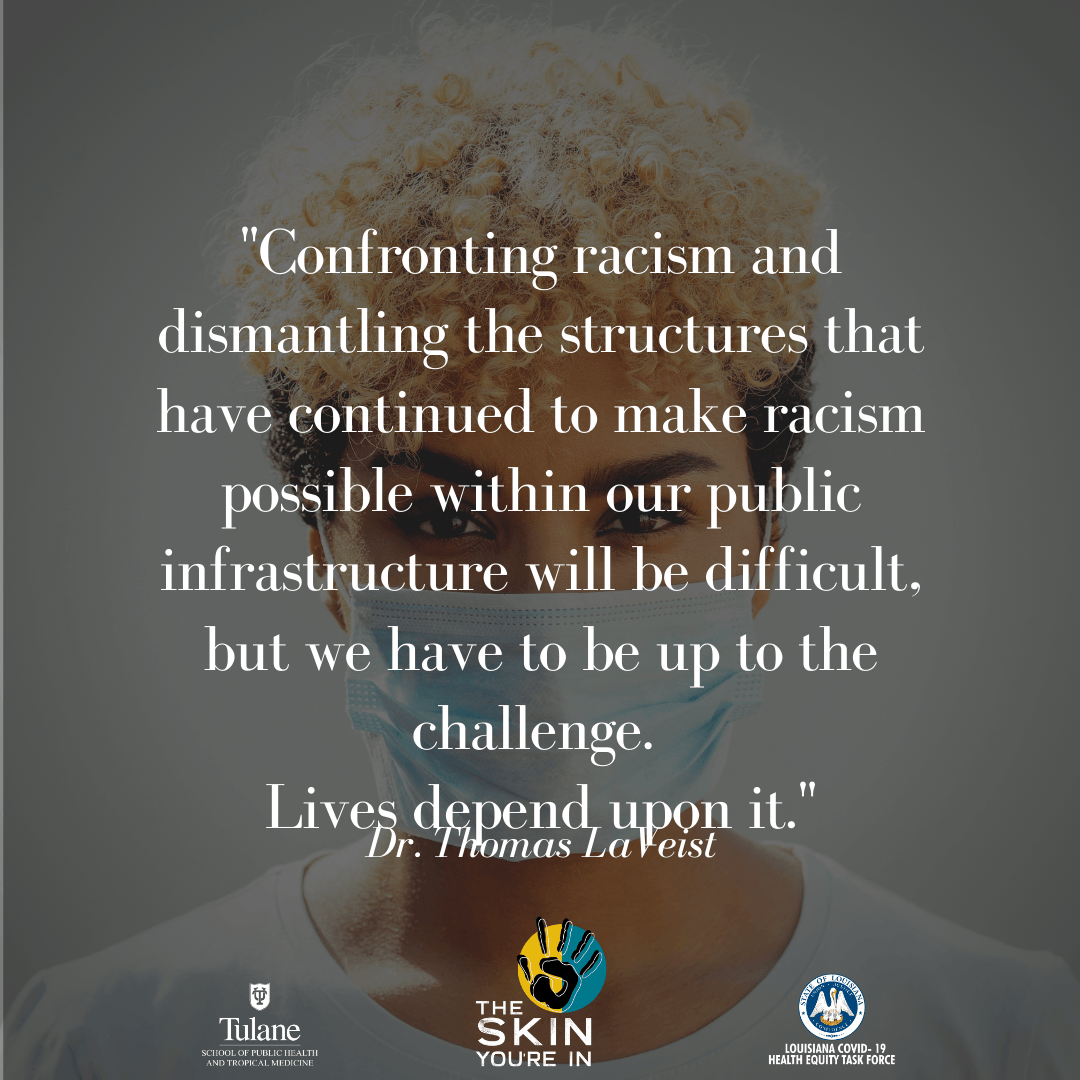
By Dr. Thomas LaVeist
•
03 Jun, 2020
I’m deeply saddened as I know all of you are over the senseless killing of George Floyd in Minnesota last week. I wish his death was an outlier, an aberration, an unusual event. But we all know that is not the case. I’ve spent my career trying to save lives and improve health, delving into why Black Americans live sicker and die younger than their white counterparts. To be sure, sometimes the cause of death is heart disease, cancer, or, now, COVID-19. Sometimes the cause of death is violence, abuse, and hatred. Sometimes – too often – that cause is at the hands of those entrusted with our safety. George Floyd died a violent, unnecessary death. He endured excessive use of force by a police officer. Cellphone video shows Derek Chauvin pressing his knee on Mr. Floyd’s neck, indifferent to his cries for breath. “I can’t breathe,” Floyd gasped, echoing Eric Garner’s final words as New York police officer Danial Pantaleo held him in a choke hold. Mr. Floyd and Mr. Garner are not alone. Alton Sterling. Botham Jean. Philando Castile. Michael Brown. Jamee Johnson. Sean Reed. Steven Demarco Taylor. Terrence Franklin. Miles Hall. Michael Dean. Samuel David Mallard. E.J. Bradford. Stephon Clark. Breonna Taylor. Sandra Bland. Atatiana Jefferson. There are even children, Tamir Rice and Antwon Rose. Each of these is a horrific, individual case, but collectively they (and others) speak to a deep, cancerous, systemic racism that affects every black and brown person in our country. As we, public health students, faculty, and practitioners, strive each day to improve health, there are public infrastructures that have been built in ways that work against us and work against people of color. Last fall we recognized 400 years of Inequality, the anniversary of the first enslaved Africans in the New World. The death of George Floyd shows us that we are still very much fighting against that horrific past, we are still reconciling the deep-seated racism stubbornly intertwined into our political and public systems. We cannot expect to have a positive outcome, to achieve health equity, if the public agencies we count on to protect us are designed to dominate, control, and even kill people of color needlessly. There’s a lot of work to do, but we all, each of us, have to start. We have to start talking about racism and pushing back against it. We all have to say, “No more.” We have to demand better from our police departments, our mayors, our governors, our president. Confronting racism and dismantling the structures that have continued to make racism possible within our public infrastructure will be difficult, but we have to be up to the challenge. Lives depend upon it.
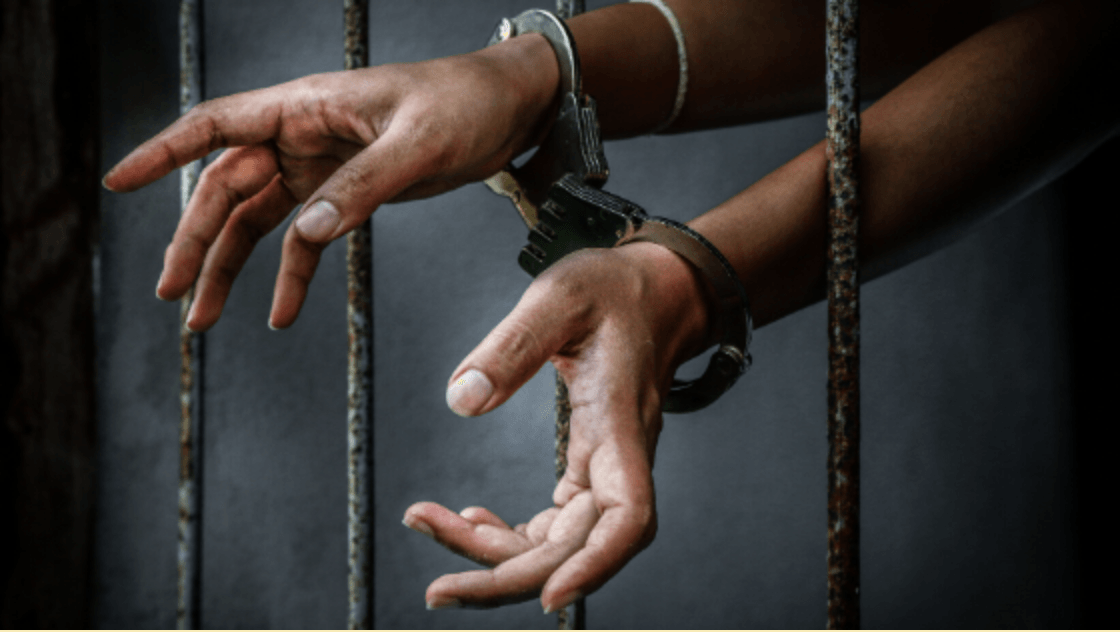
By Dr. Thomas LaVeist
•
20 May, 2020
As society we put a lot of prisons in rural communities to create jobs. the prison is largely staffed by people who live in these rural communities.As people travel from their homes to work, to stores and to church, it's likely that SARS-CoV-2 will travel along with them. rural communities don't have the medical services to deal with what is coming. I read an article recently that confirmed one of my biggest fears about this Coronavirus (COVID-19) outbreak. The Associated Press article said most of the women inside one dormitory of the Elayn Hunt Correctional Center in St. Gabriel, Louisiana had tested positive for COVID-19. The prison spokesman said 39 of the women became ill so the remaining 155 (who showed no symptoms) were tested. Of the additional women tested, 117 were positive. I suspect most of these women were Black. My fear? Nursing homes, but also prisons, are going to be the death nail of this disease. And though we obviously put prisoners away to keep society safe, the virus has turned the tables. Who will keep them safe from us? This reality will likely create a widespread economic crisis for the community and state. As a society, we put a lot of prisons in rural communities to create jobs. The prison is largely staffed by people who live in these rural communities. As people travel from their homes to work to stores and to the church, it’s likely that SARS-CoV-2 will travel along with them. Rural communities don’t have the medical services to deal with what is coming. Unlike urban areas, there are fewer or often no hospitals in several rural counties. If there is one, that hospital often does not have an Intensive Care Unit (ICU). Under normal circumstances, having one ventilator to serve four counties is OK. But during a pandemic? To say the potential carnage is alarming would be an understatement. The looming crisis is a likely reality across the South. With the exception of Kentucky and Louisiana, states have resisted expanding Medicaid through the Affordable Care Act [largely due to political reasons]. As a result, many states have seen hospital buckle and go out of business even before the COVID-19 outbreak. Since it is illegal to kick someone out of the emergency room because they can’t afford to pay, hospitals have gone deep into the red as patients who are sick and poor continue to show up. Unable to make the budgets work, many hospitals have gone out of business. In many rural counties, hospitals are the biggest employers along with the prisons. There are ancillary businesses, such as diners, coffee shops, and food markets, that depend on the customer traffic from the hospitals. If the hospitals shut down, these businesses go down with them. And we know that being out of work increases the likelihood of poverty, which increases the likelihood of the onset of other health problems in addition COVID-19. It’s a snowball of sickness. Perhaps you too heard about prisoners getting sick with COVID-19. Perhaps you thought to yourself, “Why should I care? They’re prisoners.” This indiscriminating virus is reminding us that we’re all human and we’re all interconnected.
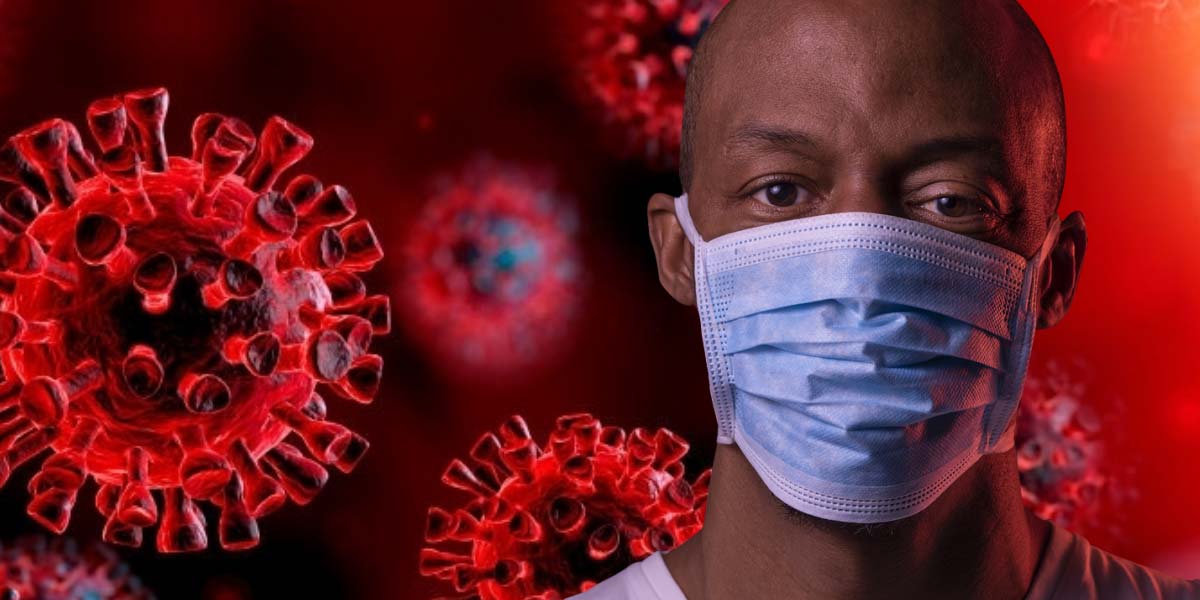
By Dr. Thomas LaVeist
•
02 May, 2020
The Coronavirus pandemic has been wrecking African American communities. COVID-19 is disproportionately affecting African Americans nationwide. Dying at higher rates, it is becoming clear that the consequences of this virus will continue long after this pandemic has ended. This campaign, The Skin You’re In: Coronavirus & Black America , is intended to provide accurate and relevant information to our communities, share resources for standing together in this time, and share personal stories of how this virus is impacting US. It alarms me to see the amount of fake health information circulating on the Internet. I'm personally concerned by how much of this false information has gone viral among members of the community that nurtured and inspired me to become a public health researcher -- my Black Community. We want to kill the myths and rumors, expose the truth about the effects of COVID-19 on African American communities, and be a resource you can trust. We want to help you make good informed decisions for yourselves and your families. Yes, we are in the middle of the storm. Yes, this too shall pass. We can get through it together.
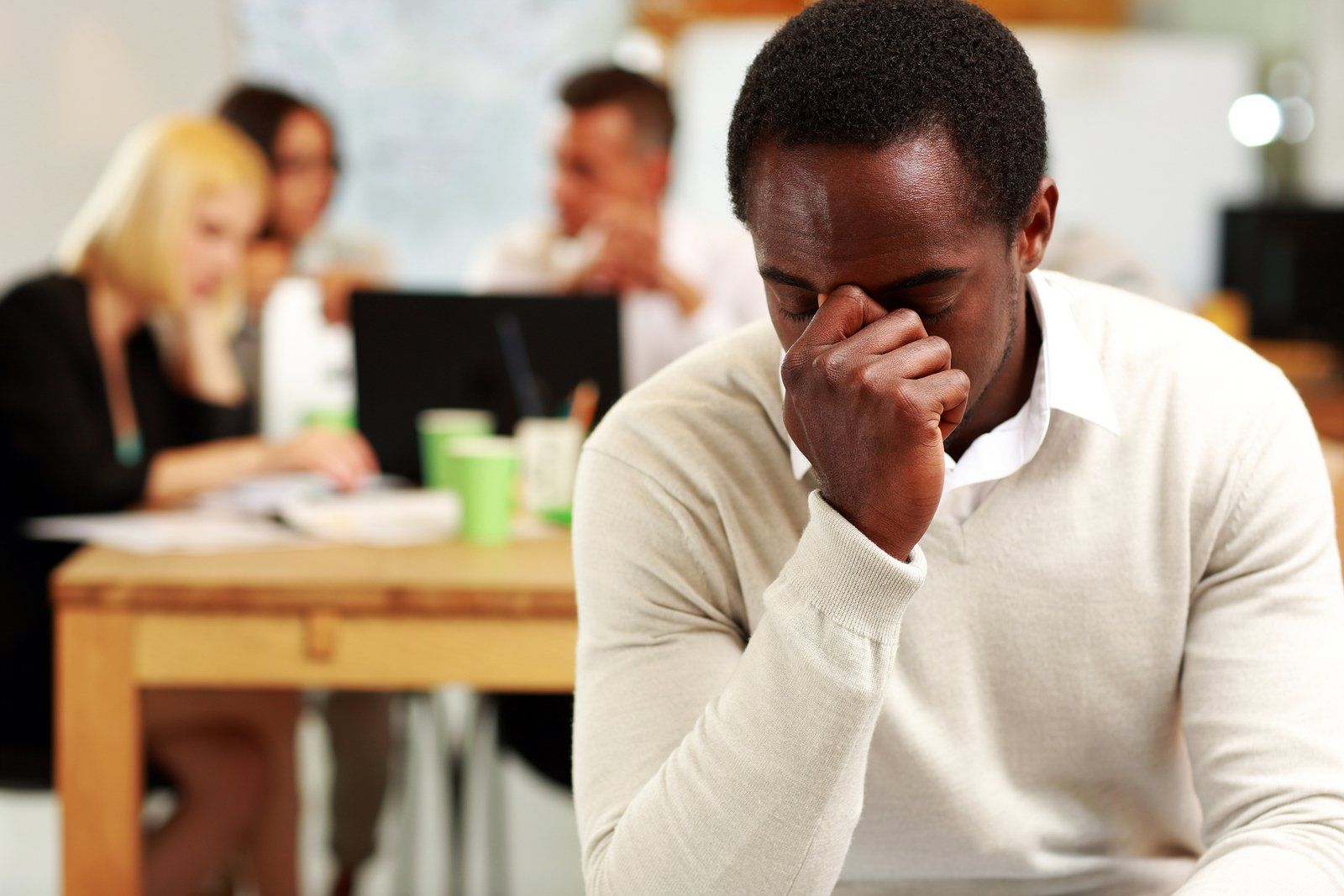
By Dr. Thomas LaVeist
•
02 Apr, 2020
Recently the president said the worst was over and the pandemic was on the decline. I do not agree. I am especially worried about the poorest region of the nation, the region that I recently moved to: the South. Southern states are often referred to as the “Bible-belt,” because of the prominence of religion. But, those of us in public health refer to the South as the “stroke-belt,” because stroke and other major health conditions are as common here as houses of worship. The South has the highest rates of diabetes, hypertension, obesity and heart disease. It's mostly tied to poverty among black residents of Louisiana and other former Jim Crow states such as Alabama, Mississippi, Georgia and South Carolina that make up the deep south. All of these health conditions are suspected of elevating risk of death from COVID-19. African Americans not only have higher prevalence of these chronic conditions, but they also, on average, acquire these conditions at younger ages. When we talk about people over the age of 65 years old being at an increased risk, for African Americans that age is probably 55, maybe even 50 years old. Although the majority of deaths in Louisiana are still those over the age of 70, 31% are between ages 50 and 69. The “perfect storm” has been gathering over the states of the Deep South for decades. The Southern states – with the exception of Louisiana – all declined to expand Medicaid benefits offered by President Obama’s signature healthcare legislation, the Affordable Care Act. Accepting Medicaid would enable millions of low-income Southerners access to health insurance. As a result, there are many more residents who are uninsured and this places a great deal of stress on hospitals. Alabama has seen one of the highest rates of rural hospital closures in America and 75% of its rural hospitals operate at a financial deficit – largely the result of the state’s decision not to accept the offer of the federal government to expand benefits. If these hospitals are overrun with COVID-19 cases among uninsured residents, this could spell disaster. The worst may yet be ahead.

By Admin
•
25 Mar, 2020
Thomas LaVeist, PhD. is a leading researcher on the topic of health disparities and the social determinants of health. Focus areas include areas U.S. health and social policy, the role of race in health research, social factors contributing to mortality, longevity, and life expectancy, and the use of health services in the United States. He is also the executive producer of the docufilm series The Skin You’re In. Dr. LaVeist is dean of the Tulane School of Public Health and Tropical Medicine. He joined Tulane University in 2019 from George Washington University where he was chair of the Department of Health Policy and Management of the Milken Institute School of Public Health. Prior to that he spent 25 years at the Johns Hopkins School of Public Health, where he was the William C. and Nancy F. Richards Professor in Health Policy and the director of the Hopkins Center for Health Disparities Solutions. In addition to being dean of the Tulane School of Public Health and Tropical Medicine, he is also the Weatherhead Presidential Chair in Health Equity. Dr. LaVeist received his bachelor’s degree from the University of Maryland Eastern Shore, his doctorate in medical sociology from the University of Michigan and a postdoctoral fellowship in public health at the Michigan School of Public Health. Dr. LaVeist has testified before Congress on health disparities, published more than 130 articles in scientific journals and was named to the prestigious National Academy of Medicine of the National Academy of Sciences. Dr. LaVeist serves as Tulane’s Presidential Chair in Health Equity, the first individual to hold one of Tulane’s newly endowed presidential chairs, created to support exceptional, internationally recognized scholars whose work transcends traditional academic disciplines. Dr. LaVeist’s groundbreaking research shows that health disparities are caused by social and economic factors, not genes or merely lifestyle choices. Dr. LaVeist is a native of the Brownsville section of Brooklyn, New York. One of the features of the The Skin You’re In is his return to his childhood community to explore why African Americans live sicker and die younger there and how current residents are confronting the crisis. Dr. LaVeist, (a married father of 4 and grandfather of 1), is civically active in the community, including as a member of Phi Beta Sigma Fraternity and Sigma Pi Phi Fraternity.
©
All Rights Reserved
CLAYBRIDGE MEDIA
